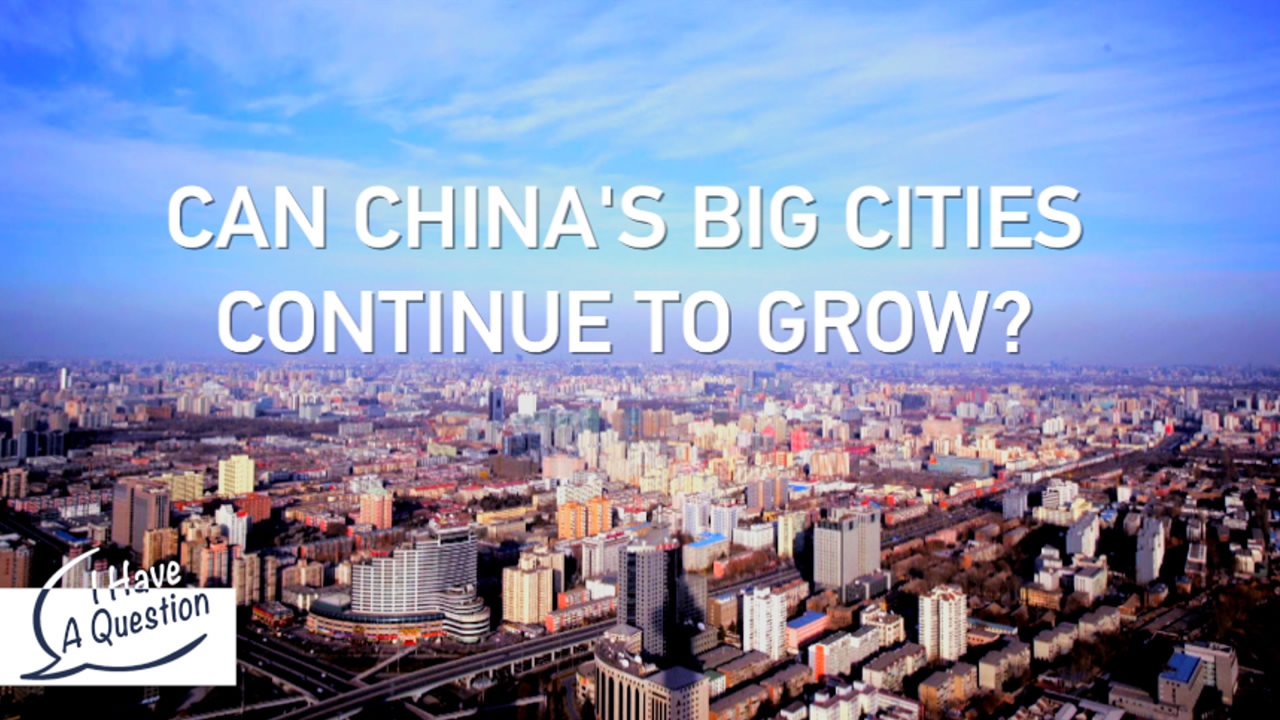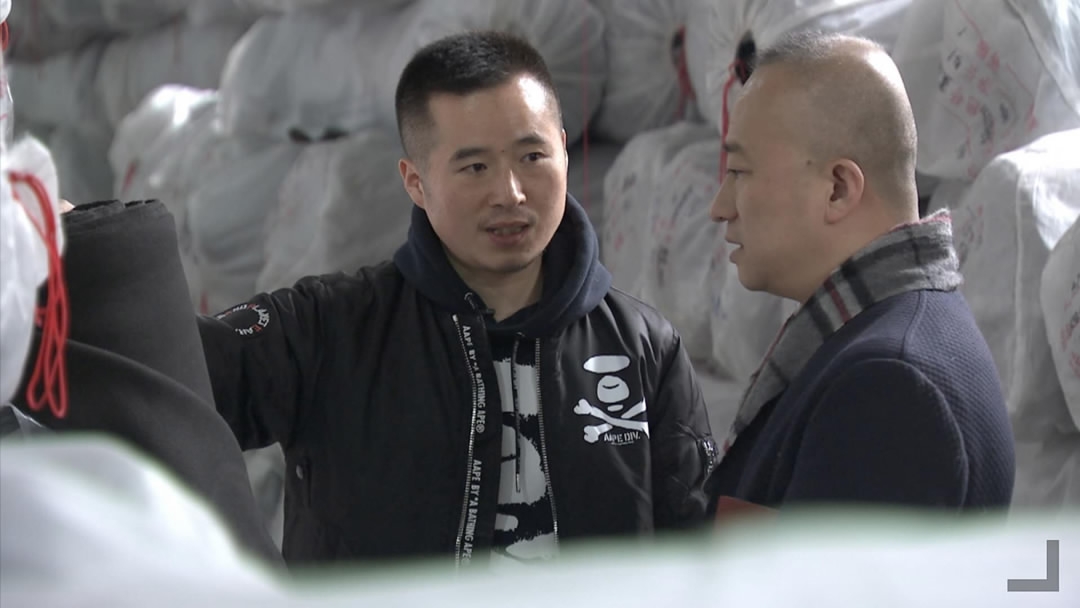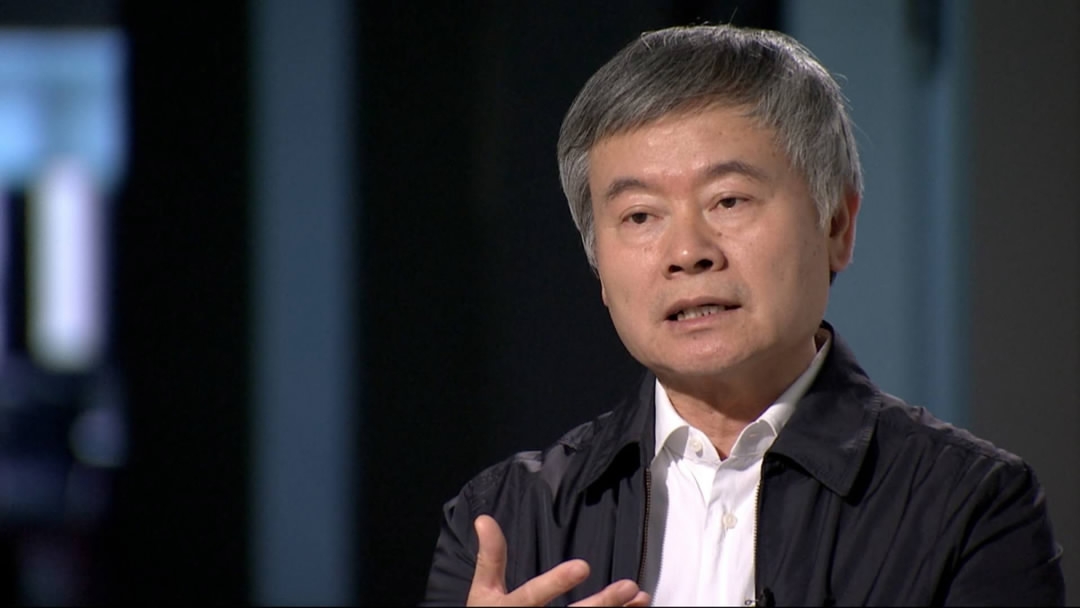
Business
23:03, 05-Mar-2018
I HAVE A QUESTION: Migrants want in too
By CGTN's Han Bin, Wei Lynn, Yuying

HOW TOLERANT IS BEIJING?
The question above may seem provocative, but before one jumps the gun, the word "tolerance" in this context refers to the question: to what extent do low-paid migrants have a say, or stay, in Beijing?
Wu Haitao, together with his family, made his way to Beijing almost two decades ago to seek a better life. At its peak, customers – clothing factories – were queuing to buy fabric from Wu.
His business is still going well, but as fate would have it, he was asked to evacuate his marketplace last August, as part of Beijing’s ongoing drive to force out the so-called "low-end" population from their residential and commercial properties, citing health and safety reasons.
“This is beyond reasoning. We are unable to understand why the government needs us to move our stock out of Beijing in the fastest time possible – seven days. It would have been better if they gave us a little more time,” Wu tells CGTN’s Han Bin.
To be sure, Wu says there is still huge demand for the wool and clothing industry in Beijing.
Wu is stuck with some 9,000 batches of inventory, along with non-refundable upfront rent for his temporary warehouse. And while he has plans to head to another city in Hebei Province to reestablish his business, uncertainties remain.
“It may take a few years to familiarize [myself] with the new market, we don’t know how it will turn out,” Wu says.

Wu Haitao tells CGTN’s Han Bin that he has no choice but to move his fabric wool business to another city. /CGTN photo by Wang Jigang
Wu Haitao tells CGTN’s Han Bin that he has no choice but to move his fabric wool business to another city. /CGTN photo by Wang Jigang
Wu’s case happened before the Daxing fire incident, which prompted the government to quicken its pace in ousting the group of migrant homes, and demolishing unlicensed buildings.
(Migrants: Those who do not have their household registration recorded in Beijing)
ARE CHINA'S BIG CITIES REALLY OVERPOPULATED?
Cai Jiming, a deputy to the National People's Congress (NPC) and a professor at Tsinghua University, reasoned that Beijing, as the capital of China and host of the country’s international affairs, should exert its function as that – to control its population.
However, he opines that the city of over 21 million, which possesses vast resources in education, culture, science and technology, should absorb more outsiders to help contribute to increasing the living standards of the country.
Cai brought to light Tokyo, Japan's capital. Tokyo's greater metropolitan area has a population of 37 million. For perspective, Japan has a population of over 100 million. This means more than a third of Japan's population lives in Tokyo.
“China is the world’s most populous nation with 1.38 billion people. And Shanghai is the most populous city in the country, but it has only about 25 million in population,” Cai says. And that accounts to barely less than two percent.
“Based on these metrics, Shanghai is lower than the world’s average. So, for China and other big cities to follow in the footsteps of Beijing – to push away its so-called ‘low-end’ population – this will severely impact the process of urbanization.”
Cai argues that there should be a proportion when it comes to housing for the "low-end" and "high-end" population.
Citing a fellow academician, he explains: with every three "high-end" job such as professor, lawyer, and doctor; correspondingly, there should be three "low-end" ones such as nannies, cashiers and delivery men.

Cai Jiming says Beijing, as a capital city, has its reasons for how it goes about capping its population, but states this method lacks validity. /CGTN photo by Wang Jigang
Cai Jiming says Beijing, as a capital city, has its reasons for how it goes about capping its population, but states this method lacks validity. /CGTN photo by Wang Jigang
“It’s wishful thinking to maintain the ‘high-end’ population but push away the seemingly ‘low-end’ ones. I want to ask: How can this high-end population live and pursue entrepreneurship here?”
CAI: LET THE MARKET ECONOMY DICTATE MIGRATION
Cai says Beijing may well be good to control its “core” population – those who live within the second ring road. He claims, those beyond the second ring road still has space for development.
The capital city has publicly made known of its plans to cap its population to 23 million by 2020.
“But even within the core areas there isn’t much "low-end" population, so to expel them away based on this reason – there isn’t any leg to stand on for this theory,” Cai says.
What does he suggest?
First and foremost: to respect the law of market economy. In other words, to allow free migration of population.
Cai says it is understandable that people flocking to a big city will result in traffic congestion, lack of access to education, and long queues in the hospital.
“When you come across this situation, the solution is not to drive people out, but to use existing public resources to increase infrastructure construction, expansion of public services, to absorb this population,” he says.
Cai further explains that since the country’s reform 40 years ago, according to law of markets – where demand drives production – people will naturally flock towards places with better employment opportunities and higher standards of living.
“As farmers migrate to the city, urbanization has to take on this industrialization responsibility. The migrant workers need to be able to equally share the fruits of this, in line with inclusive development,” he says.
This, Cai points, is based on President Xi Jinping’s Thought on Socialism with Chinese Characteristics, where the country will pursue open, innovative and inclusive development that benefits everyone.
Cai’s second suggestion is on the country’s land policy.
“If big cities need more land, we can provide them with more land. When land resources are abundant, the housing prices can cool down. When housing prices drop, the threshold for migrant workers in cities is lowered.”
As for Wu Haitao, he is somewhat hopeful, but has reservations, on the future.
“We hope the government will be more tolerant to accept us migrant workers, and allow us to live in Beijing. Our contacts and relations are all here; my kids are also pursuing their studies here,” Wu says.
(Video filmed by CGTN cameraman Wang Jigang)

SITEMAP
Copyright © 2018 CGTN. Beijing ICP prepared NO.16065310-3
Copyright © 2018 CGTN. Beijing ICP prepared NO.16065310-3